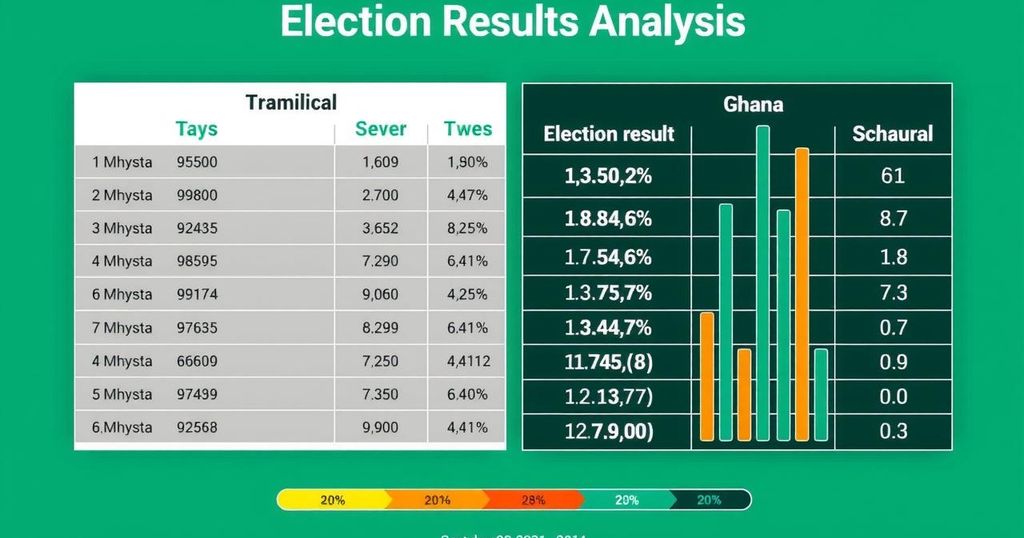The 2024 elections in Ghana resulted in a historic loss for the ruling New Patriotic Party (NPP), led by Nana Akufo-Addo and Dr. Bawumia, as they were defeated by the opposition National Democratic Congress (NDC) under John Mahama. Economic decline, high inflation, and allegations of corruption heavily influenced this electoral shift. Political analysts indicate that the electorate’s dissatisfaction with the handling of the economy played a crucial role in this outcome, reflecting a wider trend of electoral changes across Africa.
In the recent electoral outcome in Ghana, the ruling New Patriotic Party (NPP), under President Nana Akufo-Addo and Vice President Dr. Bawumia, has faced a significant defeat against the opposition National Democratic Congress (NDC) led by John Mahama. This transition follows an eight-year tenure of the NPP, marking a notable change in Ghanaian politics, as no party has maintained power beyond eight years since the inception of the fourth republic in 1992. The economic crisis, rampant inflation, and allegations of corruption significantly influenced voters’ perceptions, leading to discontent and eventual rejection of the incumbent government. Political analysts, including researcher Mussa Dankwah, suggest that dissatisfaction with economic management directly contributed to the NPP’s electoral loss, as public sentiments reflected deep-rooted frustrations with rising living costs and unemployment.
Ghana has a history of alternating power among political parties within a four-year term limit as mandated by the constitution. The fourth republic began in 1992, and since then, every ruling government, although often granted a second four-year term, has struggled to remain in power for more than eight years. The 2024 elections were particularly significant as the NPP sought to make history by being the first party to secure a third consecutive term. However, the prevailing economic hardships, triggered by external factors such as the Russia-Ukraine war and compounded by the COVID-19 pandemic, determined voters’ decisions against the ruling party.
The defeat of the NPP in the 2024 general elections illustrates the significant impact of economic factors, public dissatisfaction with governance, and effective opposition mobilization in shaping electoral outcomes. The elections not only shifted political power back to the NDC but also highlighted the necessity for the ruling party to reassess its policies and strategies in response to public grievances. Ghana’s electoral outcome reflects a broader trend across Africa where economic crises have prompted changes in government, underlining the importance of responsive governance in maintaining public confidence.
Original Source: www.bbc.com






